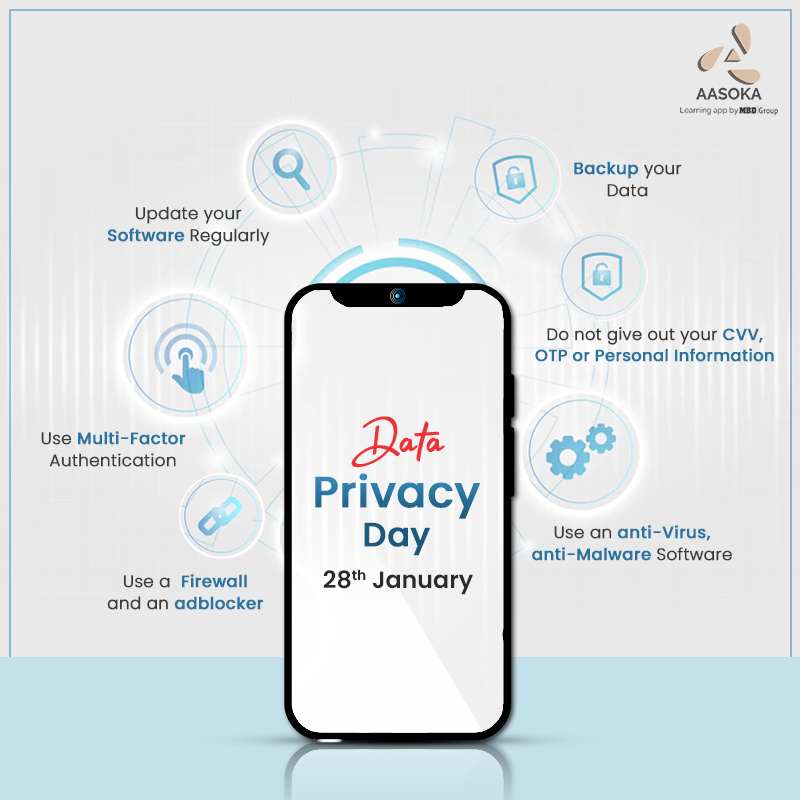
Imparting technical literacy to students became a necessity during the pandemic. Considering the advantages of the e-learning system, educational institutions have continued providing online support to students and faculty. It has resulted in a significant rise in internet users. With data exchange happening online, one must know how to ensure data safety.
Privacy is a fundamental right, and data privacy is concerned with the individual right to control storage, access, retention, and security. Websites and applications require the user to provide personally identifiable information like name, address, phone number, etc. Medical records, financial and confidential data that we trust with the websites when shared with unauthorized third parties, can bring serious harm, including the threat to identity.
Data Protection incorporates legal and technical safeguards which ensure that the user’s personal information is limited to the purpose, without any attempt to collect unnecessary data. Privacy laws aim to restrict the circulation of personal data.
Students need to be aware of personal data protection. From the physical proximity of an intruder, while you type the credentials to the recognition of phishing sites, every move has to be made vigilantly.
We suggest a minimal checklist for all e-users:
• Upgrade your software regularly: Developers are constantly coming up with new features that add to the data security attributes. It is also recommended to change the passwords timely.
• Use multi-factor authentication: In case your password has been cracked, multi-factor authentication will protect you against privacy breaches. Multi-factor authentication requires two or more ways to authenticate, which ultimately provides multi-level security.
• Use a firewall and an ad blocker: Ad blocker is the best way to get rid of annoying ads and online tracking, thus protecting your computer from malware.
• Backup your data: Backup protects against human errors, hardware failures, and virus attacks. Your devices and privacy will be protected from unwanted foreign access.
• Don’t give out your CVV, OTP, or personal information: If you’ve linked banking and other apps with your contact numbers, make sure you never share your OTPs with anyone. Keep CVV and information exclusive.
• Use an anti-virus, anti-malware software: Virus attacks can harm your data and device. To avoid such loss, install up-to-date anti-virus and anti-malware software.
Your private data if exposed illegally can bring unwanted circumstances. Your online studies should also involve awareness of the cyber-crimes and frauds you may have to deal with at any point in time.
As a Learning Management System (LMS), AASOKA places a high priority on protecting user data security and privacy. Here is an explanation of each step we take to guarantee data security:
- HTTPS: We use HTTPS to keep your data safe and secure during communication with the platform.
- Cloud Servers: All the data gets stored on cloud servers with advanced security measures in place.
- Firewall: Our firewall monitors and regulates network traffic to stop unauthorised access to your data.
- Content Delivery Network: Through distributed servers, we provide data swiftly and securely using a CDN
- Data Encryption: We encrypt your sensitive data during transmission to ensure it remains safe and secure.
- Data Backup: We regularly backup data in case of accidental loss, system failure or any other reason. The secure backup will ensure that data gets restored quickly in the event of any unexpected situation.
- Cookies: To offer personalised services and improved experiences, we use cookies in accordance with privacy laws.
At AASOKA, we value the security of your data and work hard to provide educators and students with a dependable and secure learning environment.
